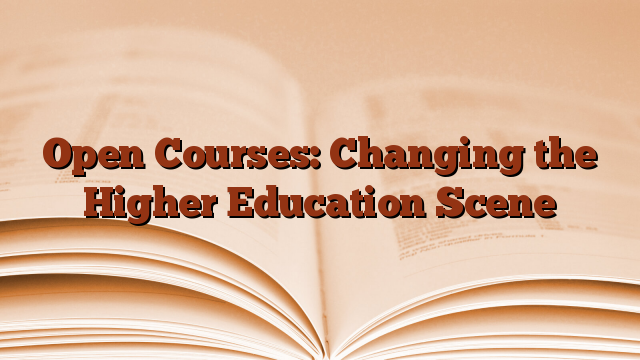Would you like to take a course at MIT, one of the most respected technology schools in the world? You don’t have to have near-perfect SAT scores, you don’t have to have a 4.0 GPA, you don’t have to pay the $50,000 in tuition — in fact, you don’t even have to be an enrolled student. Sounds too good to be true? MIT has put its entire course catalog online, so anyone who wants to view lectures, class notes, assignments, and other materials can do so from their computer.
Online education continues to change the way educators and students envision higher education, and MIT’s open courses are just one of the many ways traditional ground schools are adapting to advances in technology. Due to the expansion of online education, the OpenCourseWare Consortium, a non-profit organization dedicated to advancing global educational opportunities, was formed to provide students worldwide with the ability to access college courses and relevant materials.
MIT isn’t the only prestigious elementary school getting involved. Stanford, Tufts, Yale, the University of Michigan, and Harvard also offer many if not all of their courses online for free. So why give away something that many students pay so much for? “My deep belief is that as academics we have an obligation to spread our ideas as widely and freely as possible,” said Rebecca Henderson, professor of economics at MIT and Harvard.
Sharing the knowledge of the world is the goal of the OpenCourseWare Consortium. Obtaining copyrights from more schools and then making the material available effectively, as well as long-term funding, are issues to be addressed. Initial funding came from the private sector through affluent schools and organizations such as the William and Flora Hewlett Foundation. But, say the directors of the consortium, “relying on philanthropy is unsustainable.”
To address sustainability, copyright issues and course effectiveness of the open education movement, activists, educators and academics will gather in Barcelona for meetings on education, accessibility and trends in open education. Open Ed 2011 and the Drumbeat Learning Freedom and the Web Festival will come together to discuss the future of education and the web and the ‘decisions needed to make open education a reality’ and ‘impact and sustainability’.
Mary Lou Forward, Executive Director of the OpenCourseWare Consortium, plans to attend both meetings. Unequal access to education is one of the key drivers behind the development of OpenCourseWare. Providing free education to the masses is a concept that Forward always has in mind. “What I think about all the time,” she says, “are ways to bring education to people.”
While open courses do not provide students with actual coursework or a possible degree, many use them for self-study or to find areas of study that may interest them in their later major. In addition, open courses give disadvantaged or traditionally low-access students who may not be able to attend college the opportunity to study and learn exactly what their peers are studying elsewhere.
OpenCourseWare hopes to eventually go national and global higher education Courses available for free to students and learners around the world.
Thanks to Emily Sismour | #Open #Courses #Changing #Higher #Education #Scene

Leave a Reply